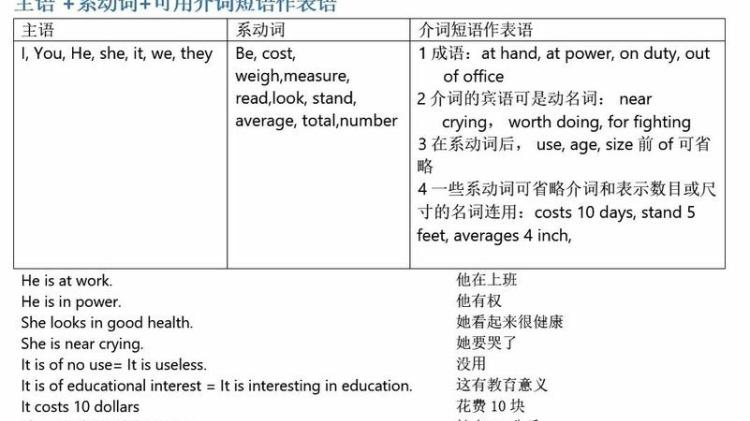英语中,动词与介词的组合可以作为表语,描述主语的状态或特征。常见的组合包括"be afraid of"、"be good at"、"be interested in"、"be tired of"、"be proud of"和"be fond of"等。使用时,通常需要配合be动词的不同形式,且不需要再加宾语。理解和运用这些组合可以使语言表达更准确、生动。

以下是一些常见的动词与介词组合,可以用作表语:
- Be afraid of (害怕)
- She is afraid of spiders. (她害怕蜘蛛。)
- Be good at (擅长)
- He is good at playing the piano. (他擅长弹钢琴。)
- Be interested in (对...感兴趣)
- They are interested in learning Chinese. (他们对学习中文感兴趣。)
- Be tired of (厌倦)
- I am tired of this job. (我厌倦这份工作。)
- Be proud of (自豪)
- She is proud of her children. (她为自己的孩子感到自豪。)
- Be fond of (喜欢)
- He is fond of playing basketball. (他喜欢打篮球。)
需要注意的是,动词与介词组合作为表语时,通常需要使用be动词的不同形式(如is、are、am等),并且不需要再加上宾语。此外,动词与介词组合作为表语时,它们的意义和用法与作为动词的宾语或状语时可能会有所不同,需要根据具体语境进行理解和运用。

